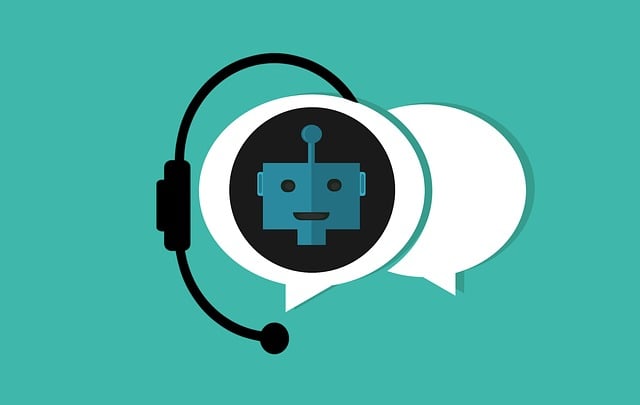AI chatbots and assistants have transformed customer service by providing 24/7 global support, leveraging NLP and machine learning to mimic human interactions for tasks like answering FAQs and resolving issues. Businesses integrating these solutions can deliver personalized experiences at scale, boosting satisfaction and loyalty. However, as AI takes on ethical decision-making, careful design, rigorous testing, and ongoing monitoring are crucial to prevent biases, ensure transparency, and protect user privacy. Ethical frameworks guide developers in creating fair and accountable AI customer service solutions, fostering public trust. By addressing bias, promoting transparency, and ensuring accountability, the design and regulation of AI chatbots and assistants enhance trustworthiness, improving user experiences while upholding ethical standards.
In the rapidly evolving landscape of AI technology, AI chatbots and assistants are transforming customer service interactions. As these virtual agents become more integrated into daily life, understanding their role in ethical decision-making becomes paramount. This article explores the responsibilities of AI assistants, delving into ethical frameworks guiding their actions, and dissecting challenges like bias and transparency. We also examine strategies to enhance trust through responsible design and regulatory measures, emphasizing the importance of AI ethics in customer service interactions.
- Understanding AI Chatbots and Assistants in Customer Service
- The Role of Ethical Decision-Making Frameworks
- Challenges and Considerations: Bias, Transparency, and Accountability
- Enhancing Trust and Responsibility through AI Design and Regulation
Understanding AI Chatbots and Assistants in Customer Service

AI chatbots and assistants have transformed customer service by providing instant, 24/7 support to users worldwide. These advanced technologies leverage natural language processing (NLP) and machine learning algorithms to understand and respond to customer inquiries in a human-like manner. In the realm of AI customer service, chatbots and assistants are increasingly handling complex tasks, from answering frequently asked questions to resolving basic issues and even assisting with sales and marketing initiatives.
By integrating these AI solutions, businesses can offer personalized experiences at scale, improving customer satisfaction and loyalty. However, as AI chatbots and assistants become more involved in ethical decision-making processes, it becomes crucial to ensure they adhere to ethical guidelines and principles. This involves careful design, rigorous testing, and ongoing monitoring to prevent biases, ensure transparency, and maintain user privacy during interactions with these digital assistants.
The Role of Ethical Decision-Making Frameworks

AI chatbots and assistants are increasingly integrated into various aspects of our lives, from customer service to healthcare. As these technologies advance, understanding their role in ethical decision-making becomes paramount. Ethical decision-making frameworks provide a structured approach to navigate complex moral dilemmas, ensuring that AI systems align with human values and principles.
These frameworks guide the development and deployment of AI chatbots and assistants by establishing guidelines for identifying ethical considerations, evaluating potential impacts, and mitigating risks. By adopting such frameworks, developers can create AI customer service solutions that are transparent, fair, and accountable. This proactive approach fosters public trust and ensures that AI technologies serve humanity’s best interests while respecting individual rights and dignity.
Challenges and Considerations: Bias, Transparency, and Accountability

The integration of AI chatbots and assistants into customer service has brought about significant advancements, but it also presents a unique set of challenges when it comes to ethical decision-making. One of the primary concerns is bias, as these systems are only as unbiased as the data they’re trained on. If the training data contains human biases or stereotypes, the AI may inadvertently perpetuate and amplify these issues in its decisions and responses. This is particularly problematic in customer service scenarios where fair and impartial interactions are crucial.
Transparency is another critical consideration. Customers interacting with AI assistants should be aware of this relationship to provide informed consent. Understanding that they’re communicating with a machine empowers users to manage their expectations and helps build trust. Moreover, accountability is essential; when an AI assistant makes a decision or provides information, there must be mechanisms in place to trace and explain its reasoning. This ensures responsibility and allows for the correction of any ethical missteps by AI customer service systems.
Enhancing Trust and Responsibility through AI Design and Regulation

The design and regulation of AI chatbots and assistants play a pivotal role in fostering trust and ensuring ethical decision-making processes. As AI continues to integrate into various aspects of customer service, it’s crucial that developers prioritize responsible practices from the outset. This involves implementing robust data protection measures to safeguard user privacy, as well as designing algorithms that are transparent and explainable, allowing users to understand how decisions are made.
Furthermore, regulatory bodies should establish clear guidelines for AI development and deployment, particularly in sectors where ethical considerations are paramount. Such regulations can help mitigate potential biases in AI systems, ensure fair treatment of all users, and promote accountability. By combining thoughtful design with strong regulation, AI chatbots and assistants can become more trustworthy allies in the complex landscape of modern customer service, ultimately enhancing user experiences while upholding ethical standards.






